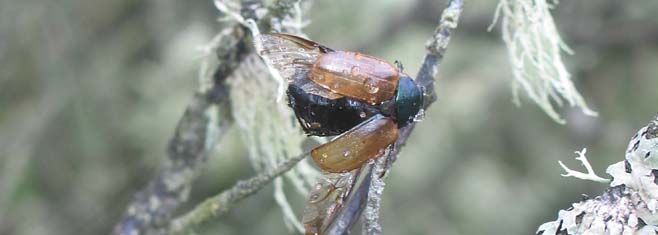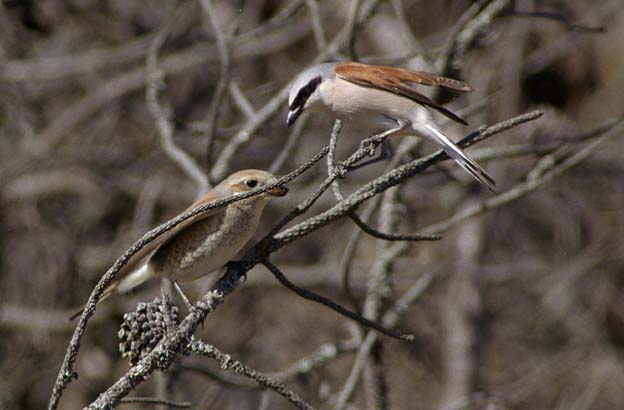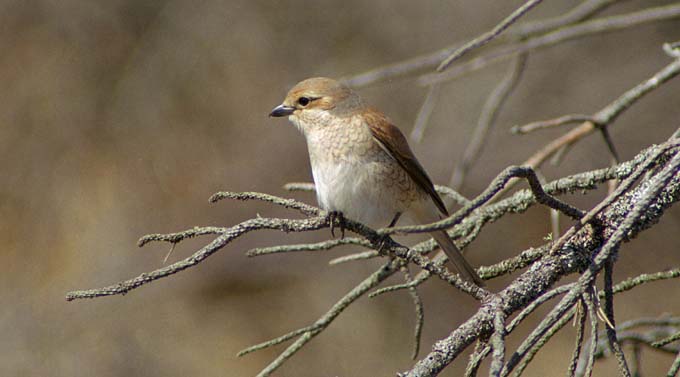
Lanius collurio
Red-backed Shrike / Tornskata / Rødrygget tornskade

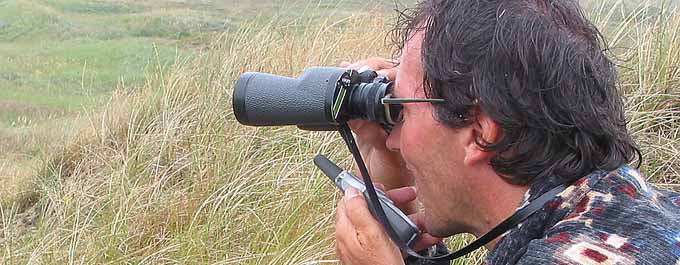
| "Flight number seven is coming in" It sounds like something out of an airport control tower but its a piece of information delivered over the walkie to the guy in the tent near the Shrikes nest some 50 meters away, telling him that one og the adult birds is returning from its seventh mission this morning to feed the hungry youngsters. |
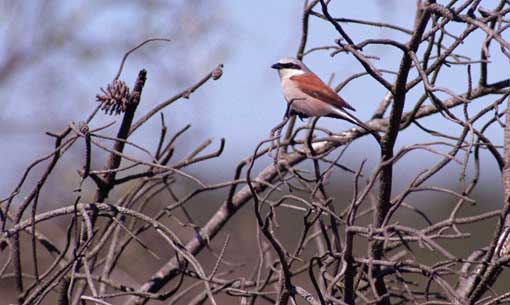
| It’s the second shift and his two
hour watch the guy in the tent is supposed to determine what insect
species the bird is bringing to the nest, and put it on the list. Theo is
warning him that an adult is on its way. Only, it’s not the birds that of interest here. It’s the birds choise of insects. What’s on the menu. |
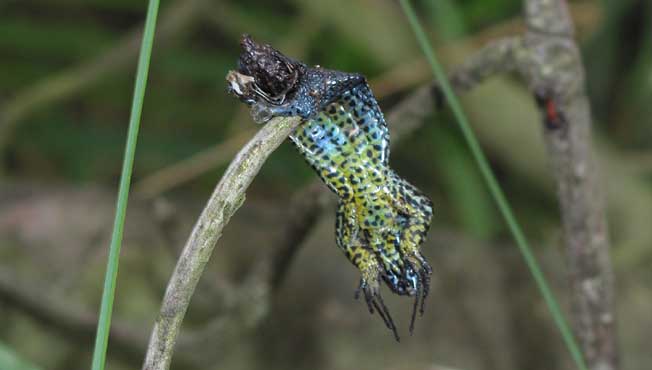
| Theo is not a bird guy really. "70% of the worlds diversity are insects", he says, and you believe him. He’s from the Catholic University of Nijmegen Netherlands, " And all bird-life, all life on earth," he says:" Are dependant on insects". |

| He is looking though his binoculars and at the same time
talking to his walkie. Along with three other scientists he is visiting
this northern top of peninsula Jutland over the summer to find out why the
Redbacked Shrikes have stopped breeding in Holland, with the last couple
in 1998, and why they at the same time, seam to be so successfully
breeding here in Denmark’s north western coasts. Sure enough. These people do not simply count the birds and go home. |
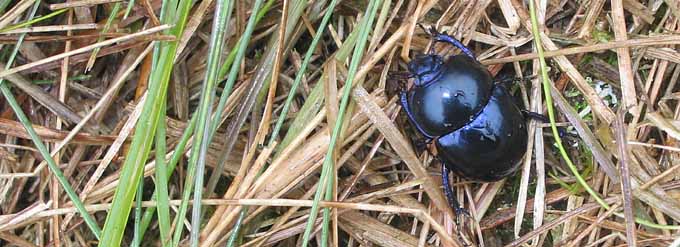
| They have carefully mapped down 15 nests to examine, and countless larders of the Shrikes. Bushes filled with insects and lizards put on spikes by these beautiful birds, bushes checked daily now, but as the Shrikes are only the top of long and complicated food chain Theo and his friends are bound to carefully investigate all under laying levels as well. This way they have on a map 4 sites where the female Anomala dubias, a beetle that seams to be the favourite food of the Shrikes, have dug themselves down for the egg laying. Sites to carefully examined later and judged. Why do this beetle live and breed so fine around here, and why not in Holland ? |
